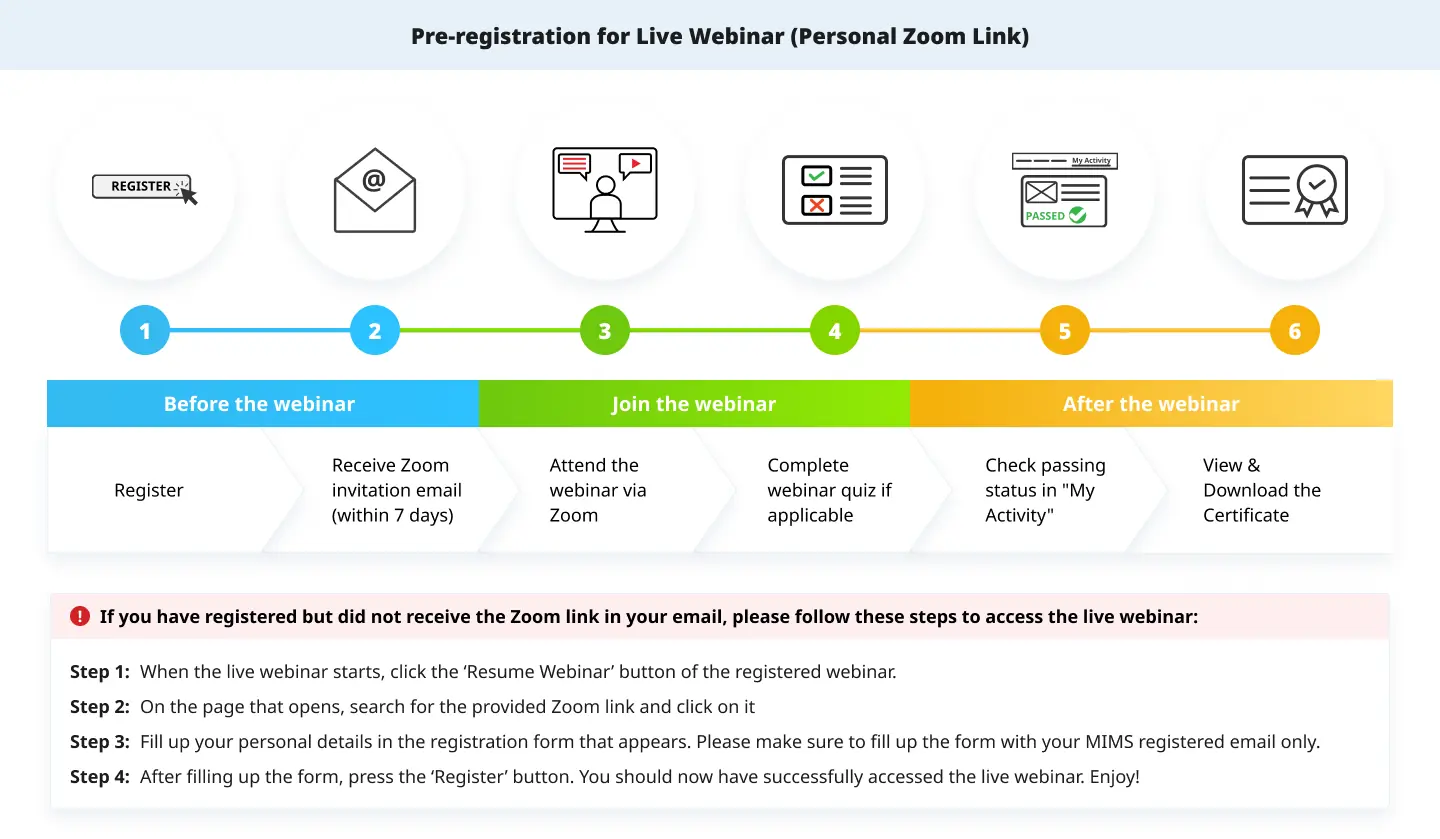MIMS Education


Climate Change and Respiratory Health: Strategies and Solutions for Clinicians
: 1 Hour 30 Minutes
: 30 Sep 2024 00:00 - 17 Oct 2024 17:00
: 17 Oct 2024 19:00 - 17 Oct 2024 20:30
Overview
If you have pre-registered earlier (1 month or 2 hours before the event), please check your email to access your webinar participant link. (Please avoid sharing your personal Zoom link to others).
Alternatively:
Alternatively:
- If you didn't receive or could not locate the Zoom email or
- If you have joined just now
As climate change continues to reshape our environment, its impact on respiratory health has become increasingly evident. Clinicians are at the forefront of addressing these challenges, requiring up-to-date knowledge and effective strategies to manage the rising burden of respiratory diseases. This webinar is designed to equip healthcare professionals with the latest evidence on how climate change is affecting respiratory health and to provide practical strategies for managing these conditions in clinical practice.
Topics:
- The Impact of Climate Change on Respiratory Health by Dr Imelda Mateo (Philippines)
- Clinical Strategies for Managing Respiratory Diseases in a Changing Climate by Dr. Kapil Salgia (India)
|
||||||||
This webinar is accredited for 1 CPD point for doctors in Malaysia, India and Singapore, 1.5 PAFP & 1 PRC CME Point for doctors in Philippines. For doctors in Hong Kong, CPD points are as follows:
- Hong Kong College of Community Medicine 1.5
- Hong Kong College of Emergency Medicine 1.5
- The Hong Kong College of Family Physicians 2.0
- Hong Kong College of Physicians 1.5
- MCHK 1.5
Add to calendar
Something went wrong.










